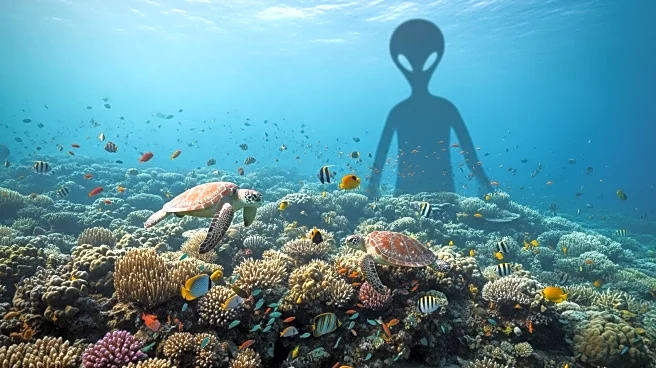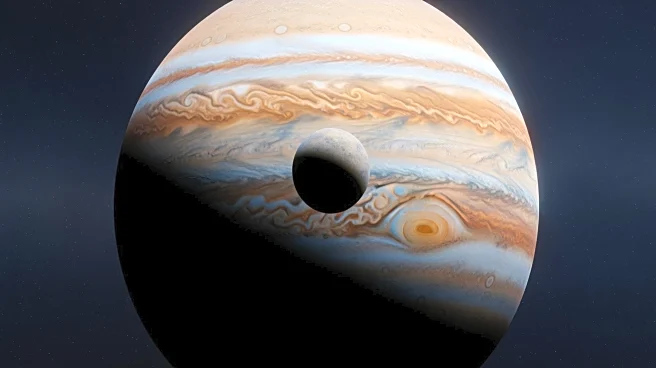What is the story about?
What's Happening?
The Mediterranean Sea is experiencing significant ecological changes due to rising water temperatures, a phenomenon known as tropicalization. This has led to an influx of species from warmer regions, particularly the Red Sea, into the Mediterranean. The opening and subsequent expansion of the Suez Canal have facilitated this migration, allowing species like the lionfish and invasive jellyfish to thrive. These species are outcompeting native marine life, causing a shift in biodiversity and threatening the balance of the ecosystem. The increase in invasive species is not only an ecological concern but also poses economic risks to local fisheries and tourism industries that rely on native marine life.
Why It's Important?
The tropicalization of the Mediterranean Sea has far-reaching implications for both the environment and the economy. The spread of invasive species disrupts local ecosystems, leading to declines in native species populations. This can have cascading effects throughout the food chain, impacting marine habitats and the livelihoods of those dependent on these resources. Economically, the health of native marine life is crucial for the sustainability of fisheries and tourism industries in surrounding coastal countries. The presence of invasive species could jeopardize these industries, which are vital to the regional economy.
What's Next?
Conservation efforts are critical to mitigating the impact of tropicalization and invasive species in the Mediterranean Sea. Marine protected areas (MPAs) have proven effective in preserving biodiversity and supporting local economies. Global initiatives, such as the United States' national ocean biodiversity strategy, aim to stabilize native species populations and promote marine health. These efforts focus on maintaining biodiversity and supporting sustainable industries. Local communities also play a crucial role in conservation, through initiatives and environmentally conscious decisions, to safeguard the Mediterranean's future.
Beyond the Headlines
The expansion of the Suez Canal has accelerated the migration of species from the Red Sea to the Mediterranean, highlighting the need for careful management of such infrastructure projects. While some species may offer ecological benefits, the overall impact has been detrimental to native species accustomed to colder waters. Conservation efforts must balance the introduction of new species with the protection of existing ecosystems to ensure long-term sustainability.
















